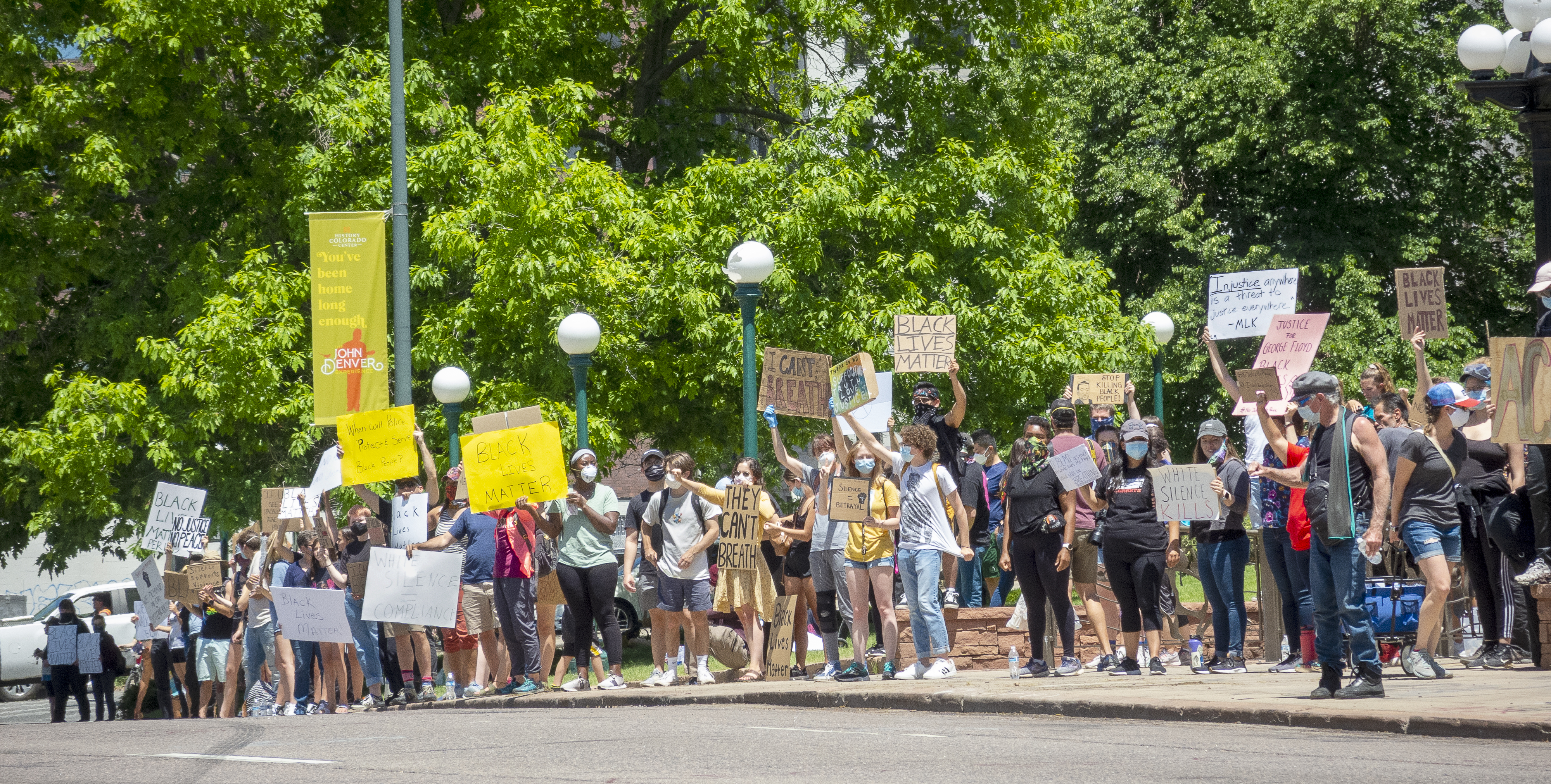
Story
The Past Is Present
Every generation sees itself at the center of history, and Americans in 2020 were no different. But as time passed, many were disappointed to realize that change was less profound than they had hoped. Still, it might have been comforting to learn that they were part of a much longer effort to define their nation.
Editor’s Note: How will 2020 go down in history? In the Hindsight 20/20 project from The Colorado Magazine, twenty of today's most insightful historians and thought leaders imagine themselves in 2120, looking back on 2020 and sharing their visions of how that year will stand the test of time.
Myriad historical sources from 2020—whether official press outlets or the avalanche of social media that was then so popular—indicate that Americans disagreed about nearly everything except the belief that they were living in “historic times.”
An unforeseen pandemic brutalized underserved communities and the elderly. Left without coordinated national leadership, states and localities adapted by imposing a spectrum of measures to control the spread of the virus, which swelled the ranks of the unemployed and left students without the crucial structure of school life. Longstanding structural racism boiled over into massive public protests that reached well beyond cities into small towns and suburbs. A presidential campaign rocked by anger and polarization heightened voter turnout; that same polarization emboldened the incumbent to reject his defeat in the Electoral College. Devastating wildfires throughout the autumn in the American West created the sense that the natural world was spinning out of control as well.

The Cameron Peak Fire was the largest wildfire in the state's history in 2020; Colorado's nineteen other largest wildfires have all occurred since the year 2000.
From the vantage point of 2120, however, these episodes are best understood not as historic in the sense of having seismic importance, but rather deeply historical as being part of a much longer and larger context.
The rapid spread of Covid-19 was facilitated by the same globalizing forces that transformed an influenza mutation on a remote farm in Kansas in 1918 into a pandemic that killed 50 million people worldwide. Structural inequality—both racial and economic—galvanized earlier generations, whether the ardent moral reformers of the 1830s, the Progressives of the 1910s, or the Civil Rights activists of the 1950s. In 2020, those periods of reform became urgent reminders of the persistence of both injustice and the potential for change. Likewise, the generation of reformers that followed would draw upon the inspiration of those who advanced the cause of social justice in 2020.

Protestors lined the streets near the Capitol building in downtown Denver to voice their disgust over police brutality and social injustice.
And while Americans of all beliefs bemoaned the sharp political division of 2020, they might have paused to consider that partisan bitterness is endemic to our history. In the 1790s, the emerging political parties considered their opponents not just rivals, but enemies of democracy; after the Civil War, white southerners rejected the Republican Party as entirely illegitimate; and in the early Cold War, fear of Communism abroad destroyed norms within Congress and sowed distrust among citizens. In each of these moments (and in those difficult episodes that followed), rank partisanship eroded faith in representative democracy and the integrity of those institutions.
However seismic the changes of 2020 appeared to those who lived through it, many also recognized what James Baldwin meant when he wrote in 1965 that “history is literally present in all that we do.” He knew that history was “not merely something to be read,” nor did it even reside in the past. Instead, historical forces govern every aspect of our lives, even our identities and aspirations.
Baldwin’s observations often fall on deaf ears, for Americans like to see themselves untethered to the past, free to chart their future. But the disruptive events of 2020 demonstrated how deeply we live in the world of our ancestors, whether we appreciate it or not.
More from the Hindsight 20/20 project in The Colorado Magazine
Our Strength is Our Union We've learned a lot (that we didn't want to know) about life during a global pandemic. Mark Earnest examines how a society enshrined one generation's learning so that it became durable for future generations to draw upon. A century later we consider: How long does a society retain the lessons we learn?
Burning Truth: The Beginning of the End for Colorado's Forests In 2020, three Colorado wildfires consumed a combined total of more than half a million acres—dwarfing what had previously been the state’s most destructive fire seasons. It should have been an alarm heard throughout the West, even worldwide. The lessons were right there to be learned. And yet . . .
A TikTok Pandemic Story In 2020, a generation of young people experiencing isolation and loneliness in the midst of a pandemic seized on a new platform called TikTok. This new generation of media creators transformed trauma into creativity and, ultimately, connection.
